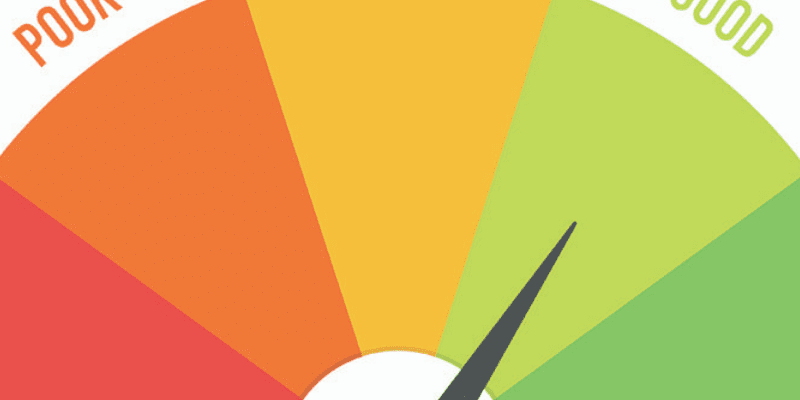CCJ mortgages: How To Get Mortgage With Bad Credit?

Table of Contents
ToggleBad Credit Mortgage- Can Bad Credit Get Mortgage?
Are you dreaming of homeownership but worried about past financial hiccups? Fear not, fellow adventurer! While securing a mortgage with bad credit or a CCJ (County Court Judgment) might require extra effort, it’s not an impossible quest. Let’s equip you with the knowledge and tools to navigate the mortgage maze and unlock your dream home.
What is a County Court Judgement?
In the UK, a County Court Judgement (CCJ) is a court order issued against someone who fails to repay a debt. Creditors use it to reclaim the money owed and can only be issued in England, Wales, and Northern Ireland (Scotland has a different system called “enforcing a debt by diligence”).
Here’s how it works:
- Unpaid debt: If you owe money and fail to make repayments, your creditor may take legal action against you.
- Claim form: The creditor will send you a claim form outlining the debt and demanding repayment.
- Responding to the claim: It’s crucial to respond to the claim form within the specified timeframe, usually 14 days. Ignoring it can lead to a CCJ being issued automatically.
- Court hearing: If you respond, the court may schedule a hearing to hear both sides of the case.
- CCJ issued: If the court rules in favor of the creditor and you have yet to reachto repay the debt, they can issue a CCJ.
What a CCJ means:
- Public record: The CCJ will be registered on the public record for six years, affecting your credit score and making it harder to borrow money in the future.
- Repayment obligation: You are legally obligated to repay the debt according to the terms of the CCJ.
- Enforcement action: The creditor can take various enforcement actions to recover the debt, such as withholding wages, seizing your assets, or instructing bailiffs to collect the debt.
About the CCJ
Is the CCJ outstanding or settled?
Repaying the debt within 30 days of the CCJ being issued is unlikely to affect your mortgage chances adversely. The same can be said if you have successfully appealed against the CCJ. However, the issue of default letters in the run-up to the CCJ may still appear on your credit history.
Whether the CCJ has been paid off, settled or is still outstanding is likely the biggest factor in a lender’s decision. If the CCJ has been settled, the time since this happened will also have a bearing. Many lenders will refuse to lend money to an individual with an outstanding CCJ, while some lenders will not approve a mortgage if a CCJ has been settled within the past three years.
Judgment in default
A default judgment occurs when an individual chooses to ignore a CCJ. The court hearing takes place without them, and the court decides in their absence. This situation can reduce your chances of obtaining a mortgage even more, especially if you ignore the judgment made by the court.
When was the CCJ issued?
If your CCJ was settled and occurred more than six years ago, it will be removed from your credit file. At this point, many lenders will consider approving a mortgage. However, when the CCJ was settled will be a factor in their decision, not just the date on which the CCJ was issued. For many lenders, the CCJ will need to have been settled for more than a year before they will consider you for a mortgage.
Size matters – how big was the CCJ?
The size of the CCJ is another important factor in a lender’s decision over whether or not to offer you a mortgage. If the CCJ was issued within the previous two years and was for more than £2,500, securing a mortgage will be much more difficult. If the CCJ was issued within the past year, its size would need to be much smaller for a CCJ mortgage to be considered.
The importance of a deposit
The size of the CCJ and when it was issued will be a factor in determining the deposit size that the mortgage company will require. If the size of the CCJ is larger and it was not issued very long ago, the mortgage provider will require a larger deposit than they would from a borrower with a smaller CCJ that was issued a long time ago.
A CCJ issued within two years could require a loan to value (LTV) term of 85%, meaning you would be required to deposit 15% of the property’s price.
If the CCJ occurred within the last year and for a smaller amount, a lender could require an LTV of between 65% and 75%, meaning you would be required to find a deposit of 25% and 35% of the property’s price.
The higher your deposit, the greater your chance of securing a mortgage with a CCJ. Therefore, if you have been issued a CCJ in the past and you know you will want to take out a mortgage in the future, it is worth saving as much money as you can towards the deposit.
How many CCJs can I have?
When it comes to the number of CCJs you can have to be still considered for a mortgage, this depends on factors such as the size of the CCJs, when they were issued and whether they are still outstanding or have been settled.
Once again, the size of your deposit will be an important factor. The higher the deposit you can put down, the more CCJs a mortgage company would be willing to accept, subject to date of issue and status of the CCJ.
Can you get a mortgage with a CCJ on your credit file?
Hold your horses, friend, a CCJ doesn’t automatically slam the door shut on your mortgage dreams! While navigating the path with a CCJ isn’t a cakewalk, it’s certainly not an impossible trek. The key lies in understanding the landscape:
- Age and size matter: A fresh, hefty CCJ is more concerning than a seasoned, smaller one. Remember, it vanishes from your report after six years like a magician’s rabbit! The reason for the CCJ whispers too – a missed rent payment might raise more eyebrows than a disputed medical bill.
- Money talks: A stellar credit score despite the CCJ can work wonders. Steady income and employment? Music to a lender’s ears, proving you can handle the mortgage marathon. And don’t underestimate the power of a bigger deposit – it reduces the lender’s risk, making them more likely to cheer you on.
- Lender love varies: High street lenders might be stricter, like bouncers at an exclusive club. But specialist lenders welcome folks with imperfect credit histories, offering flexible terms (though maybe at a slightly higher interest rate, like VIP concert tickets).
- Proactive steps? Score! Settle that debt and get the CCJ marked “satisfied” – a badge of honor in the credit world. Be upfront about the CCJ, explaining the story with honesty. Boost your credit score by paying bills on time and saying goodbye to unnecessary debt. A mortgage broker who’s a CCJ whisperer can be your guide, finding lenders who see beyond the blip and recognize your potential.
How to get a mortgage with a CCJ?
While getting a mortgage with a CCJ in the UK can be more challenging, it’s not impossible.
Before you start:
- Understand your CCJ: Age, amount, and reason behind the CCJ all play a role in how it affects your application. Older, smaller, and satisfied CCJs are less concerning.
- Check your credit score: A strong score despite the CCJ can significantly improve your chances. You can get your credit report free from agencies like Experian, Equifax, and TransUnion.
Increase your chances:
- Address the CCJ: If possible, settle the outstanding debt and ensure the CCJ is marked as “satisfied” on your credit report.
- Improve your credit score: Pay bills on time, reduce debt, and avoid taking on new credit.
- Save a larger deposit: A bigger deposit reduces the risk for lenders and makes you a more attractive applicant.
- Be upfront and honest: Explain the CCJ to potential lenders and the circumstances surrounding it.
Choose the right lender:
- High-street lenders: They have stricter criteria and may be less likely to approve applicants with CCJs.
- Specialist lenders: They cater to borrowers with imperfect credit histories and offer more flexible options, though often at higher interest rates.
Seek professional advice:
- Mortgage broker: A broker experienced with CCJs can guide you towards lenders more likely to approve your application and negotiate better terms.
- Debt advisor: If you’re struggling with debt, they can help you manage it and improve your financial situation.
Bad Credit Mortgage Lenders UK
I can provide you with some resources and general information to help you on your search:
Resources:
- MoneyHelper: This government-backed website offers free and impartial advice on all things money-related, including mortgages with CCJs.
- The Money Charity: This charity provides free debt advice and can help you understand your options if you’re struggling financially.
- Citizens Advice: This charity offers free legal and financial advice, including on mortgages and CCJs.
- Mortgage brokers: A mortgage broker can help you find lenders who are more likely to accept your application, even with a CCJ on your record. They can also negotiate rates on your behalf.
Bad Credit Mortgage Rates
Securing a mortgage with bad credit can be a challenge, and unfortunately, it comes with the price tag of higher interest rates compared to those with good credit. Here’s what to expect:
Understanding the Range:
- Expect to pay 1-2% higher rates: Compared to standard mortgage rates, bad credit mortgages can carry an additional 1-2% interest rate.
- Rates vary significantly: Depending on your specific credit history, the severity of the CCJ (if applicable), and the chosen lender, rates can range from around 4% to over 10%.
Factors Affecting Your Rate:
- Severity of bad credit: Newer, larger, and unsatisfied CCJs will significantly impact your rate compared to older, smaller, and satisfied ones.
- Overall financial situation: Your credit score, income, employment stability, and deposit size all play a role in determining the offered rate.
- Chosen lender: High-street lenders typically offer lower rates but have stricter criteria. Specialist lenders cater to borrowers with bad credit but charge higher rates.
- Comparison is crucial: Don’t settle for the first offer. Compare rates and terms from various lenders to find the best deal.
Eligibility criteria for CCJ
There’s no universal “one-size-fits-all” eligibility criteria for obtaining a mortgage with a CCJ on your credit file in the UK. Different lenders apply varying levels of strictness based on their own risk models and internal policies.
Factors influencing your eligibility:
CCJ-related:
- Severity of the CCJ: Newer, larger, and unsatisfied CCJs will significantly hurt your eligibility compared to older, smaller, and satisfied ones.
- Reason for the CCJ: Reasons like missed rent payments might raise more red flags for lenders than a disputed medical bill.
Financial situation:
- Credit score: Despite the CCJ, a strong credit score can significantly improve your chances.
- Income and employment: Stable income and employment demonstrate your ability to repay the mortgage.
- Deposit size: A larger deposit reduces the risk for lenders and improves your eligibility.
Chosen lender:
- High-street lenders: They generally have stricter criteria and might be less likely to approve applicants with CCJs.
- Specialist lenders: They cater to borrowers with imperfect credit histories and offer more flexible options, but often at higher interest rates.
Beyond these core factors, lenders might also consider:
- Time elapsed since the CCJ: Older CCJs carry less weight.
- Actions taken to address the CCJ: Settling the debt and having it marked satisfied improves your standing.
- Explanation for the CCJ: Be upfront and honest about the circumstances surrounding the CCJ.
How much deposit will you need?
The minimum amount of deposit you can expect to get approved for a mortgage with a CCJ is 10% of the property’s value, but if your CCJ was registered recently or is for a high amount, 25% is more realistic. This is subject to change depending on the lender’s criteria
How much can you borrow?
Having a CCJ won’t directly impact the amount you can borrow, as this will largely be based on your income and outgoings. Most lenders will cap your maximum borrowing at 4.5 times your salary, although a few go higher than this, up to 5.5-6 times income.
Keep in mind that it might be harder to secure a mortgage deal based on a higher income multiple if you have bad credit, purely because you will have fewer lenders to choose from.
What if you have additional bad credit issues?
If you have additional bad credit issues on top of a CCJ, it can add more complexity to your mortgage application. Still, the good news is that it isn’t impossible to get approved or even secure a competitive issue with more than one type of bad credit.
You will, however, need to apply through a specialist bad credit mortgage broker to stand the best chance of finding a lender with a high enough appetite for risk.
Remortgaging with a CCJ
Getting a mortgage with a CCJ on your credit file in the UK is challenging, but remortgaging can be even more so. However, it’s still possible with the right approach.
Understanding the Challenges:
- Increased scrutiny: Lenders view remortgaging with a CCJ as risker than a first-time mortgage, expecting timely repayments and adherence to new loan terms.
- Higher interest rates: Expect rates to be higher than regular remortgage offers due to the perceived increased risk.
- Limited lender options: High-street lenders might be less open to applicants with CCJs, leaving specialist lenders who often charge higher rates.
Example:
John has a 2-year-old CCJ for £2,000 unpaid credit card debt. He wants to remortgage his £200,000 property with a 20% deposit. Regular remortgage rates might be around 2.5%, but due to the CCJ, John might receive quotes with rates closer to 5%.
Improving Your Chances:
- Address the CCJ: If possible, settle the debt and get it marked as “satisfied” on your credit report. This significantly improves your case.
- Boost your credit score: Increase your credit score by paying bills on time, managing debt responsibly, and registering to vote.
- Increase your deposit: A larger deposit reduces the risk for lenders and makes your application more attractive.
- Be upfront and honest: Explain the CCJ to potential lenders and the steps you’ve taken to improve your financial situation.
- Seek professional advice: A mortgage broker experienced with CCJs can navigate the process and find lenders more likely to consider your application.
Example: John managed to settle his CCJ and got it marked as satisfied. He also worked on his credit score, raising it by 50 points. While still not perfect, it shows improvement. Additionally, he saved an extra 5% towards his deposit, increasing it to 25%. This combination significantly strengthens his application compared to simply having a CCJ on his record.
Finding Suitable Lenders:
- Specialist lenders: They cater to borrowers with imperfect credit histories and offer more flexible options, but often at higher rates. Research and compare rates from multiple lenders.
- Online mortgage brokers: Several online brokers specialize in helping borrowers with CCJs find suitable remortgage deals.
Remember: Each case is unique, and there’s no approval guarantee. Be prepared to present a strong financial position, a clear explanation for the CCJ, and a willingness to accept potentially higher interest rates. By taking proactive steps and seeking professional advice, you can increase your chances of successfully remortgaging with a CCJ in the UK.
Buy-to-let mortgage with a CCJ
Getting a buy-to-let mortgage with a CCJ on your credit file in the UK is even more challenging than a standard mortgage due to the additional risks involved for lenders. However, it’s not impossible, and with the right approach, you can still achieve your property investment goals.
Challenges:
- Increased scrutiny: Lenders will be more cautious when assessing your ability to manage mortgage repayments and potential rental income fluctuations with a CCJ on your record.
- Higher interest rates: Expect rates to be significantly higher than regular buy-to-let mortgages due to the perceived increased risk.
- Limited lender options: High-street lenders are less likely to approve applicants with CCJs, leaving specialist lenders who often charge higher rates and have stricter criteria.
Improving your chances:
- Address the CCJ: If possible, settle the debt and ensure it’s marked as “satisfied” on your credit report. This significantly improves your case.
- Boost your credit score: Increase your credit score by paying bills on time, managing debt responsibly, and registering to vote. A strong score despite the CCJ can still be attractive to lenders.
- Increase your deposit: A larger deposit reduces the risk for lenders and makes your application more appealing. Aim for a minimum of 25% deposit, but ideally 40% or more.
- Be upfront and honest: Explain the CCJ to potential lenders and the steps you’ve taken to improve your financial situation. Transparency is key.
Example:
Sarah has a 3-year-old CCJ for £5,000 missed council tax payments. She wants a buy-to-let mortgage for a £150,000 property with a 20% deposit. Regular buy-to-let rates might be around 3%, but due to the CCJ, Sarah might receive quotes with rates closer to 6%. She manages to settle the CCJ and get it marked satisfied, increases her deposit to 30%, and raises her credit score by 75 points. This significantly strengthens her application compared to having a CCJ on her record.
Finding Suitable Lenders:
- Specialist buy-to-let lenders: They cater to borrowers with imperfect credit histories and offer more flexible options at higher rates. Research and compare rates from multiple lenders.
- Online mortgage brokers: Several online brokers specialize in helping borrowers with CCJs find suitable buy-to-let mortgage deals.
Bad credit mortgage for shared ownership
Want shared ownership, but a CCJ is holding you back? Fear not, friend! Here’s the lowdown:
Challenge accepted: Getting a shared ownership mortgage with a CCJ is tougher, but not impossible. Expect stricter rules and maybe higher rates.
Boost your chances:
- Settle that CCJ: Show lenders you’re responsible by getting it marked “satisfied”.
- Credit score glow-up: Pay bills on time, ditch debt, and register to vote for a credit score shine-up.
- Bigger deposit, bigger win: Save more for a bigger deposit – it makes you a more attractive borrower.
- Be honest: Explain the CCJ upfront, show what you’ve done to fix it. Transparency is key!
- Get help: A bad credit mortgage broker or housing association can guide you and find lenders who understand.
Where to look:
- Specialist lenders: They cater to folks with imperfect credit, but rates might be higher.
- Online brokers: They can help you find suitable shared ownership deals with CCJs in mind.
- Housing associations: Some offer shared ownership with their own, potentially more lenient, criteria.
Remember:
- Shared ownership costs: Factor in rent and service charges on top of your mortgage.
- Long-term commitment: Shared ownership is long, so be sure you’re ready.
With effort and the proper guidance, that shared ownership dream can still be yours!
How a bad credit mortgage broker can help?
A bad credit mortgage broker can be a valuable resource for those seeking a mortgage with a CCJ on their credit file. Here’s how they can help:
Understanding your situation:
- They assess your financial situation, including income, employment, deposit size, credit score, and the specifics of your CCJ.
- They explain the impact of the CCJ on your mortgage options and eligibility.
Finding suitable lenders:
- They have access to a wider network of lenders, including specialist lenders who cater to borrowers with imperfect credit histories.
- They know which lenders are more likely to consider your application based on your specific circumstances.
- They negotiate with lenders on your behalf to try and secure the best possible rates and terms.
Guiding you through the process:
- They help you gather the necessary documentation for your application.
- They explain the application process and answer any questions you have along the way.
- They advocate for you with lenders and help present your case in the best possible light.
Additional benefits:
- They can offer advice on improving your credit score, which can further improve your chances of approval.
- They can help you understand the different mortgage options available and choose the one that best suits your needs.
- They can save you time and effort by navigating the complex mortgage application process on your behalf.
How can I increase my chances of getting a mortgage with CCJ?
Getting a mortgage with a CCJ on your credit report in the UK can be challenging, but you can significantly increase your chances with the right approach. Here are some steps you can take:
Address the CCJ:
- Settle the debt: If possible, settling the outstanding debt and ensuring it’s marked as “satisfied” on your credit report is crucial. This demonstrates your commitment to responsible financial management.
- Explain the CCJ: Be upfront and honest with lenders about the CCJ, explaining its circumstances and what steps you’ve taken to address the issue. Transparency is key.
Improve your credit score:
- Pay bills on time: Consistent on-time payments across all your bills significantly improves your credit score.
- Reduce debt: Minimize your overall debt, including credit cards, loans, and overdrafts.
- Register to vote: Being registered to vote helps build your credit history.
- Avoid taking on new credit: Applying for new credit lines can negatively impact your score during the application process.
Strengthen your financial profile:
- Increase your deposit: A larger deposit reduces the risk for lenders and makes you a more attractive applicant. Aim for at least a 20% deposit, but ideally more.
- Maintain stable income and employment: Consistent income and employment demonstrate your ability to repay the mortgage.
Seek professional advice:
- Mortgage broker: A bad credit mortgage broker specializes in helping borrowers with CCJs find suitable lenders and navigate the application process. They can offer valuable insights and negotiate on your behalf.
- Debt advisor: If you’re struggling with debt, a debt advisor can help you manage it effectively and improve your overall financial health.
Additional tips:
- Compare rates and terms: Don’t just accept your first offer. Compare rates and terms from different lenders to find the best deal.
- Be patient: Getting approved with a CCJ may take longer, so be patient and persistent in your search.
- Consider alternative financing options: Explore joint mortgages or bridging loans if a traditional mortgage proves challenging.
Remember: Each case is unique, and there’s no approval guarantee. However, by taking proactive steps and seeking professional advice, you can significantly increase your chances of securing a mortgage with a CCJ on your credit file in the UK. Good luck!
We are accredited with some of the top Mortgage brokers in UK so that we can provide a solution for your finance needs. Mortgage advisory services are generally free. If you require an expert mortgage broker, then be sure to reach out to us. Click the button






